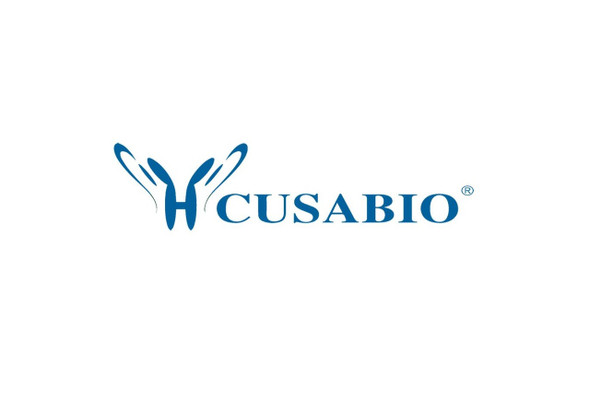Cusabio Human Recombinants
Recombinant Human Toll-like receptor 4 (TLR4), partial | CSB-EP023603HU1
- SKU:
- CSB-EP023603HU1
- Availability:
- 3 - 7 Working Days
Description
Recombinant Human Toll-like receptor 4 (TLR4), partial | CSB-EP023603HU1 | Cusabio
Alternative Name(s): hToll (CD_antigen: CD284)
Gene Names: TLR4
Research Areas: Cardiovascular
Organism: Homo sapiens (Human)
AA Sequence: EPCVEVVPNITYQCMELNFYKIPDNLPFSTKNLDLSFNPLRHLGSYSFFSFPELQVLDLSRCEIQTIEDGAYQSLSHLSTLILTGNPIQSLALGAFSGLSSLQKLVAVETNLASLENFPIGHLKTLKELNVAHNLIQSFKLPEYFSNLTNLEHLDLSSNKIQSIYCTDLRVLHQMPLLNLSLDLSLNPMNFIQPGAFKEIRLHKLTLRNNFDSLNVMKTCIQGLAGLEVHRLVLGEFRNEGNLEKFDKSALEGLCNLTIEEFRLAYLDYYLDDIIDLFNCLTNVSSFSLVSVTIERVKDFSYNFGWQHLELVNCKFGQFPTLKLKSLKRLTFTSNKGGNAFSEVDLPSLEFLDLSRNGLSFKGCCSQSDFGTTSLKYLDLSFNGVITMSSNFLGLEQLEHLDFQHSNLKQMSEFSVFLSLRNLIYLDISHTHTRVAFNGIFNGLSSLEVLKMAGNSFQENFLPDIFTELRNLTFLDLSQCQLEQLSPTAFNSLSSLQVLNMSHNNFFSLDTFPYKCLNSLQVLDYSLNHIMTSKKQELQHFPSSLAFLNLTQNDFACTCEHQSFLQWIKDQRQLLVEVERMECATPSDKQGMPVLSLNITCQMNK
Source: E.coli
Tag Info: N-terminal 10xHis-tagged
Expression Region: 27-631aa
Sequence Info: Partial
MW: 72.4 kDa
Purity: Greater than 85% as determined by SDS-PAGE.
Relevance: Cooperates with LY96 and CD14 to mediate the innate immune response to bacterial lipopolysaccharide. Acts via MYD88, TIRAP and TRAF6, leading to NF-kappa-B activation, cytokine secretion and the inflammatory response. Also involved in LPS-independent inflammatory responses triggered by free fatty acids, such as palmitate, and Ni2+. Responses triggered by Ni2+ require non-conserved histidines and are, therefore, species-specific. Both M.tuberculosis HSP70 and HSP65 act via this protein to stimulate NF-kappa-B expression. In complex with TLR6, promotes sterile inflammation in monocytes/macrophages in response to oxidized low-density lipoprotein or amyloid-beta 42. In this context, the initial signal is provided by oxLDL- or amyloid-beta 42-binding to CD36. This event induces the formation of a heterodimer of TLR4 and TLR6, which is rapidly internalized and triggers inflammatory response, leading to the NF-kappa-B-dependent production of CXCL1, CXCL2 and CCL9 cytokines, via MYD88 signaling pathway, and CCL5 cytokine, via TICAM1 signaling pathway, as well as IL1B secretion. Binds electronegative LDL (LDL-) and mediates the cytokine release induced by LDL-. Stimulation of monocytes in vitro with M.tuberculosis PstS1 induces p38 MAPK and ERK1/2 activation primarily via TLR2, but also partially via this receptor.
Reference: "Phylogenetic variation and polymorphism at the Toll-like receptor 4 locus (TLR4)." Smirnova I., Poltorak A., Chan E.K.L., McBride C., Beutler B. Genome Biol. 1:RESEARCH002.1-RESEARCH002.10(2000)
Storage: The shelf life is related to many factors, storage state, buffer ingredients, storage temperature and the stability of the protein itself. Generally, the shelf life of liquid form is 6 months at -20?/-80?. The shelf life of lyophilized form is 12 months at -20?/-80?.
Notes: Repeated freezing and thawing is not recommended. Store working aliquots at 4? for up to one week.
Function:
Involvement in disease:
Subcellular Location:
Protein Families:
Tissue Specificity:
Paythway:
Form: Liquid or Lyophilized powder
Buffer: If the delivery form is liquid, the default storage buffer is Tris/PBS-based buffer, 5%-50% glycerol. If the delivery form is lyophilized powder, the buffer before lyophilization is Tris/PBS-based buffer, 6% Trehalose, pH 8.0.
Reconstitution: We recommend that this vial be briefly centrifuged prior to opening to bring the contents to the bottom. Please reconstitute protein in deionized sterile water to a concentration of 0.1-1.0 mg/mL.We recommend to add 5-50% of glycerol (final concentration) and aliquot for long-term storage at -20?/-80?. Our default final concentration of glycerol is 50%. Customers could use it as reference.
Uniprot ID: O00206
HGNC Database Link: N/A
UniGene Database Link: N/A
KEGG Database Link: N/A
STRING Database Link: N/A
OMIM Database Link: N/A






